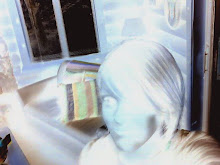
And decay is lost
The soul is gone, but
So is the body
Immortality is attained
through a blotted still
Each is trapped
Unable to escape--
the gruesome death
that was never revealed in light.
Shadows frozen in time
The everyday life they lost
Is still blotted in our minds
Forever frozen are the Shadows of Hiroshima
I am frozen in time,
Secured by the light
Blotted by the soot,
And gone by night
I am lost from reality,
I’ve escaped from life
Devoured by a gruesome death,
Fueled by international strife
I am unable to grow
On this wall, my death shows
Zach
Failure to escape





